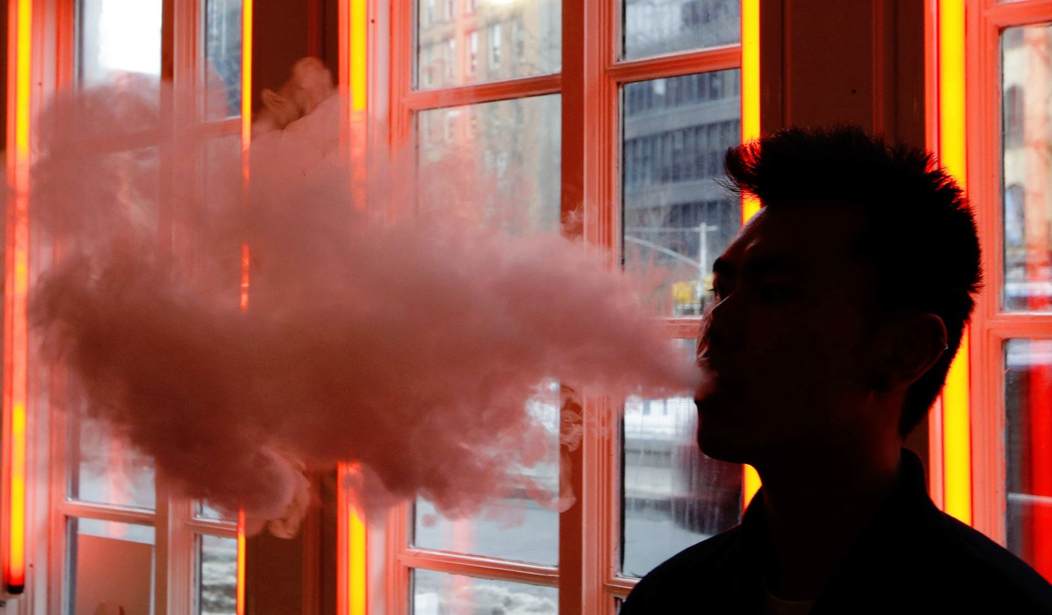In an effort to find new ways to pay for the proposed $1.75 trillion “Build Back Better” package, the House Democrats added a “nicotine tax” on tobacco products including e-cigarettes in their latest 2,135-page version of the bill. Unfortunately, there is nothing innovative about this amendment. There have been multiple attempts at federal and state levels in the past, with some of them successful, to impose this type of ‘sin tax.' While the primary objective is to raise revenue and improve public health, the proposal runs counter to the proponent’s expectations: this regressive tax hike would keep more people smoking.
Under the current proposal, any nicotine product "that has been extracted, concentrated, or synthesized" would be taxed at a rate of $50.33 per 1,810 milligrams of nicotine. While this is half of what was proposed in the first version of the bill, the net result would be similar: it would put small vaping shops out of business, increasing demand for products on the black market, and keeping people smoking more.
When a nicotine tax was initially proposed in the funding plan in September, multiple experts warned Congress of the negative repercussions the tax hike would have both on the industry and public health. But no one seemed to have listened. This myopic attempt to raise revenue for social spending puts the health of millions on the back-burner.
According to the CDC nearly 14 of every 100 American adults aged 18 years or older smoked cigarettes in 2019. This means an estimated 34.1 million adults in the United States currently smoke cigarettes.
Empirical evidence shows that e-cigarettes are an effective smoking cessation tool. In fact, while the U.S. is known for its very hostile policy stance towards e-cigarettes, other governments around the world, including the UK, have embraced e-cigarettes as healthier alternatives to traditional tobacco products.
If e-cigarettes can reduce smoking rates, and the public health gains, particularly when compounded over long time spans, could be substantial, policies designed to restrict vaping, including tax hikes that make these safer alternatives more expensive, are regressive at the very least and end up doing more harm than good. And the extent of the damage is very significant. A 2019 study conducted by the National Bureau of Economic Research, for example, found that an equalizing federal tax on traditional cigarettes and electronic cigarettes would deter 2.75 million people from quitting smoking.
Recommended
Consumers are sensitive to price. Estimates show that a 10 percent increase in price reduces sales of disposable e-cigarettes by approximately 12 percent, and by about 19 percent for reusable e-cigarettes.
As such, hiking up taxes on e-cigarettes runs counter to logic that it may mitigate harmful behavior, since the aggregate public health impact of e-cigarettes, compared to smoking, is positive. Studies show that even under pessimistic assumptions e-cigarettes will deliver significant public health benefits over the next half-century, extending the aggregate longevity of the U.S. population by 580,000 years.
In addition to the negative health outcomes, the proposed nicotine tax is also bad news for small businesses that offer vaping alternatives to smokers, as it would force them out of business. With less legal products on the market, vapers would also be encouraged towards cheaper and unsafer alternatives on the black market.
By imposing the nicotine tax, policymakers in DC are actively encouraging people to make unhealthy decisions. In its current version, the "Build Back Better" plan leads to a scenario where safer products are more expensive than cigarettes. This needs serious reconsideration. There shouldn’t be a tradeoff between revenue and public health.
Krisztina Pusok is a Director at the American Consumer Institute, a nonprofit educational and research organization. For more information about the Institute, visit www.TheAmericanConsumer.org or follow us on Twitter @ConsumerPal.

























Join the conversation as a VIP Member